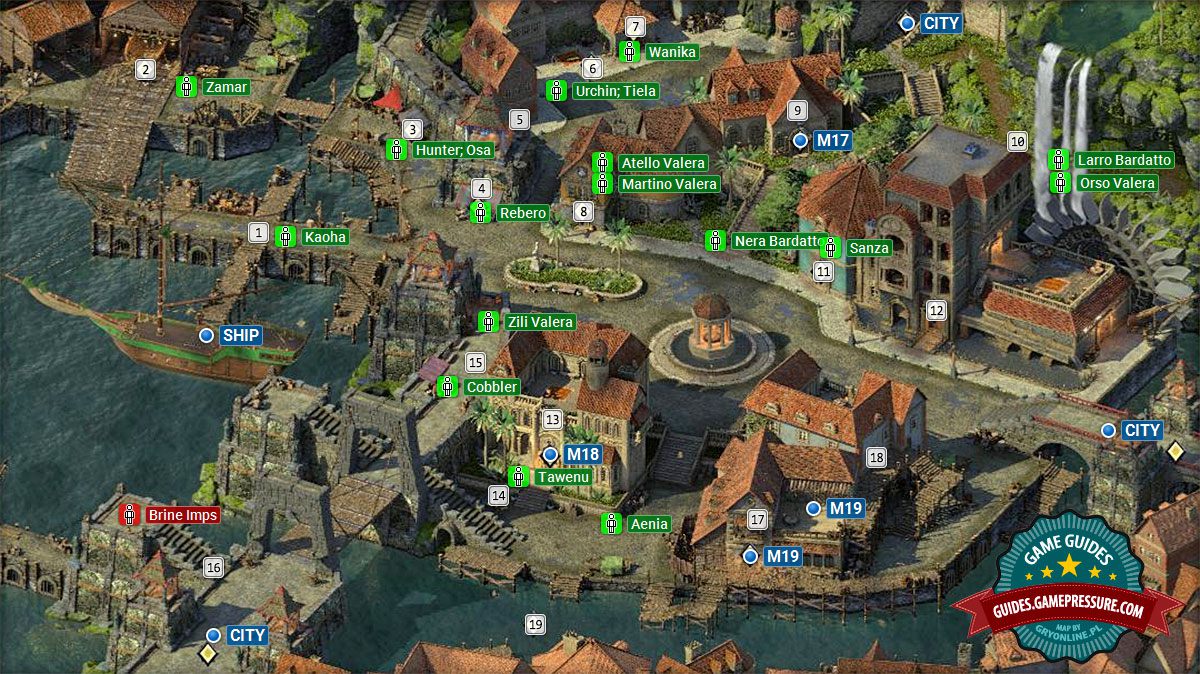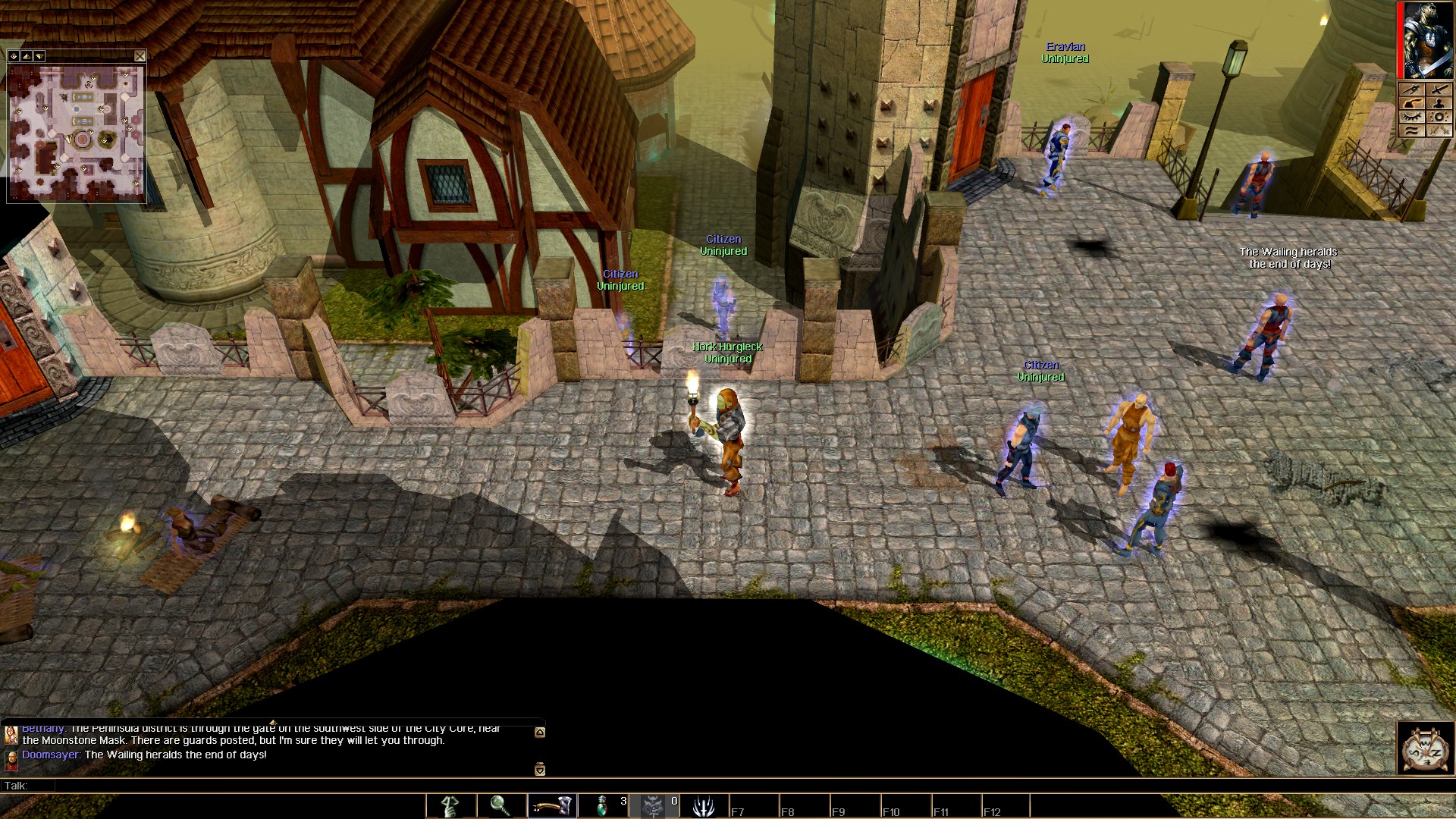Vault Dweller
Commissar, Red Star Studio

- Joined
- Jan 7, 2003
- Messages
- 28,044
Maybe the game was way ahead of its time and the market isn't ready for woke games yet?I quit POE in like 10 minutes and don't really know much about POE2, but even I know: (1) fairly novel "fantasy island chain" setting; (2) gameplay is less linear; (3) ship combat; and (4) much more "woke" for those who are looking for that in their game.Give me a reason why someone should play Deadfire? What did developers want people to say about the game? "Oh man, it's just like PoE but with a ship!"?
Anyway, yes, Obsidian did try to present the game as something different but ultimately failed. Why they failed and what they could have done differently is an interesting topic to explore. The fantasy island thing does seem interesting in theory but the execution wasn't very enticing.

^ conceptually this doesn't look any different than PoE.
An interview with Sawyer, Feb 2018:
Sawyer: In the first game, another thing thematically is that you’re kind of in a post-colonial area. It’s an area that’s already been colonized, there were already wars between the native culture and the colonizers, and most of that stuff has been resolved even though there are still some lingering issues. But in Deadfire, it’s an area that is actively being colonized despite there being a native culture there. Those themes and issues are more to the forefront. One of the reasons why we chose to have two colonizing factions is I felt that if it were simply a native culture and a colonizing culture, it would be very easy for that to fall into a trope or a lot of tropes that aren’t necessarily that interesting to explore, and some of the things that I think are very interesting about exploring colonialism in Earth is that often you will get colonial powers not only fighting each other, but also trying to play that native culture against their rivals. That’s the space that I thought was interesting to explore in Deadfire in terms of the secular conflict on the ground.
How many people felt a strong urge to dive right in and explore the effects of colonization firsthand? 1 in 10? Less? Remember that question I asked earlier - why would anyone want to play Deadfire? Some folks thought I was being edgy or implied Deadfire was shit. I wasn't and didn't. It's a questions developers have to constantly ask themselves to make sure the answer is there. So Sawyer should have asked himself why people would want to explore these themes as eagerly as they want to explore dungeons and how big the potential audience is.
The ship combat was tacked on, the game wasn't built around it, obviously. It reminded me of The Curse of Monkey Island, which wasn't the right association. Overall, it was a good way to grab attention but not a strong selling point.
And then there were the reviews:
https://kotaku.com/pillars-of-eternity-ii-the-kotaku-review-1826397542
Pillars II has a lot going for it: a vast tropical setting, a story bold enough try unpacking issues like colonialism and oppression, party members who come across as refreshingly grounded and human...
...
However, as I passed the 50-hour mark and started to deliberately make real headway in the main quest, I realized that many of Pillars II’s high points were fairly short-lived. Some, like the exploding pirate harpsichord and spider-faced merchant quests, revealed layers: alternate routes on top of alternate routes and surprising, enigmatic characters. But other side stories, including many of the companion quests, ground to a halt just when things were getting good.
For example, there’s the story of Eder, a farmer-turned-fighter who was also a companion in the first Pillars of Eternity. In Pillars II, his personal quest involves searching for a woman he was involved with back in the day. Initially, he wants to make sure she’s OK, given that there’s a mountain-sized titan who slurps up souls as naturally as we breathe on the loose. Then he finds out that she had a son, and apparently begins to wonder if the child is his. He proceeds to go through an arc of being worried, then kind of excited about the prospect of being a father. It’s a decidedly un-epic way for an epic fantasy game to approach the idea of fatherhood, and it really took me by surprise. Then it turned out that the kid didn’t belong to Eder, and—to complicate matters further—that his mom had died. Worse, the kid decided to join a death cult whose members planned to sacrifice themselves to Eothas. I ended up having to chase down the boat Eder’s not-son was on, confront him before the cult leader convinced him to kill himself, and hear him tearfully explain that he was doing this because he felt that, by dying, his mom had abandoned him.
Once again we come to the Most Important Question: why would anyone enjoy this questline?...
However, as I passed the 50-hour mark and started to deliberately make real headway in the main quest, I realized that many of Pillars II’s high points were fairly short-lived. Some, like the exploding pirate harpsichord and spider-faced merchant quests, revealed layers: alternate routes on top of alternate routes and surprising, enigmatic characters. But other side stories, including many of the companion quests, ground to a halt just when things were getting good.
For example, there’s the story of Eder, a farmer-turned-fighter who was also a companion in the first Pillars of Eternity. In Pillars II, his personal quest involves searching for a woman he was involved with back in the day. Initially, he wants to make sure she’s OK, given that there’s a mountain-sized titan who slurps up souls as naturally as we breathe on the loose. Then he finds out that she had a son, and apparently begins to wonder if the child is his. He proceeds to go through an arc of being worried, then kind of excited about the prospect of being a father. It’s a decidedly un-epic way for an epic fantasy game to approach the idea of fatherhood, and it really took me by surprise. Then it turned out that the kid didn’t belong to Eder, and—to complicate matters further—that his mom had died. Worse, the kid decided to join a death cult whose members planned to sacrifice themselves to Eothas. I ended up having to chase down the boat Eder’s not-son was on, confront him before the cult leader convinced him to kill himself, and hear him tearfully explain that he was doing this because he felt that, by dying, his mom had abandoned him.
Last edited:



























